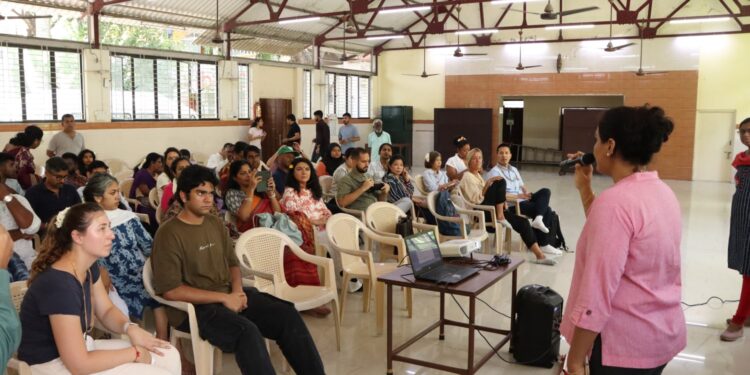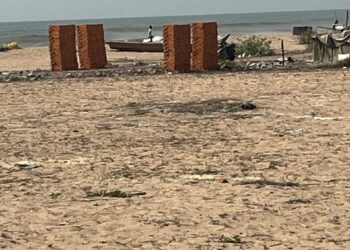By J.Hari Shankar
The Urban Ocean program, run jointly by Ocean Conservancy, Resilient Cities Network and The Circulate Initiative, is actively combating plastic pollution using a blend of upstream and downstream strategies. They collaborate with stakeholders from diverse sectors including construction, technology, education, environmental management, and the informal waste sector. Launched in 2020, the program partners with 12 cities across Asia and Latin America, aiming to pioneer effective solutions to the global challenge of plastic pollution.
During the Urban Ocean Conclave, held from June 18 to 20, delegates from countries as far as Costa Rica, Argentina, Chile, Thailand and Indonesia participated, apart from domestic representation from Karnataka, Mumbai, Pune and Surat.
On June 18, The event was graced by Supriya Sahu, IAS, Additional Chief Secretary (Environment Climate Change & Forests). She explained the various efforts taken by the government of Tamilnadu to protect the environment: Green cover mission, Coastal mission, Climate change mission, Wetlands mission etc.
On June 19, Greater Chennai Corporation Commissioner, Dr.J.Radhakrishnan, IAS, appreciated the efforts of the Urban Ocean programme and stated that such summits were essential to brainstorm and come up with ideas to combat plastic pollution. “Despite the concept of reduce and reuse, there has been an increase in the per capita garbage generated in the city from 500 gms in the year 2000 to 750 gms per household now. It is time to look for holistic integrated waste management systems to combat these issues and I am sure that we can come up with such ideas in such summits,” he stated.
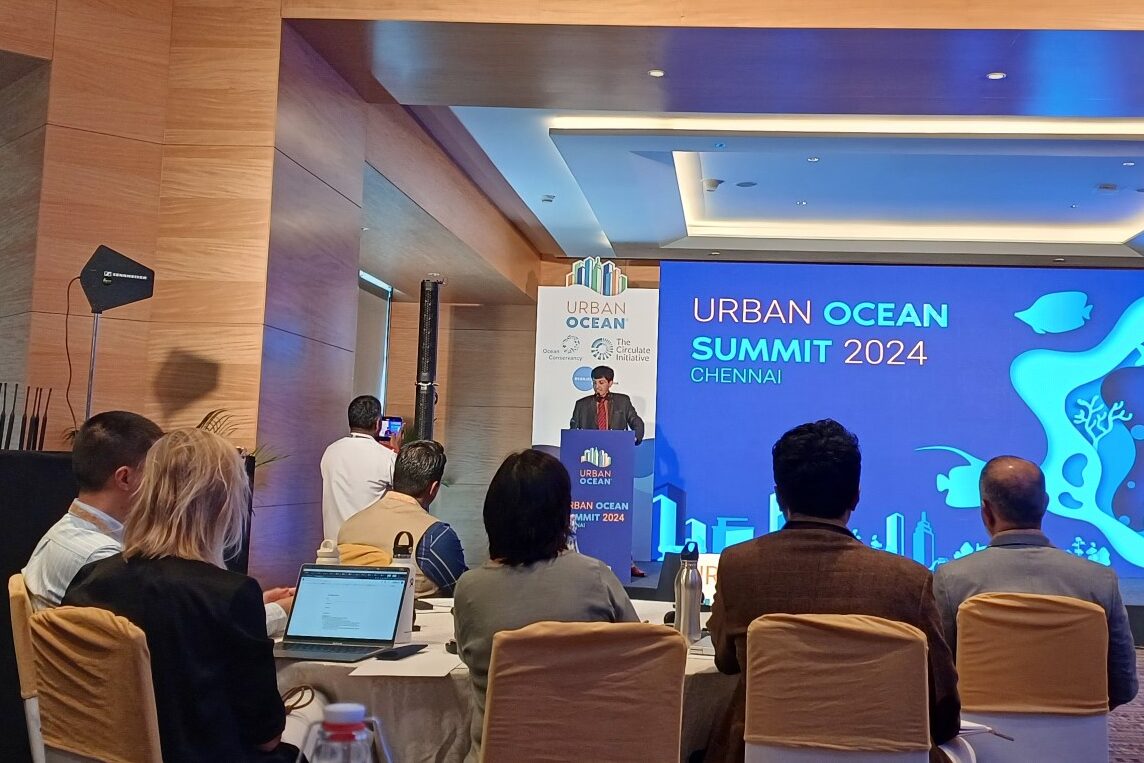
On both days, experts shared their experiences and the possible way forward. Representatives also showcased their best practices that have yielded results and the challenges that need addressing. The key highlight was, however, the pilot visit to the neighbourhood of Kasturba Nagar, held on June 20.
Residents of Kasturba Nagar Association (ROKA) has collaborated effectively with Okapi Research and Advisory (IIT Madras incubated) to spearhead comprehensive waste management initiatives, through the We Segregate Project. Together, they have implemented innovative strategies to promote sustainability and environmental responsibility within the community. Their partnership not only addresses waste management challenges but also educates residents on the importance of recycling and reducing their carbon footprint. By fostering community engagement and leveraging expertise from these organisations, ROKA continues to make significant strides in creating a cleaner and greener environment for all residents of Kasturba Nagar.
The day began at the KNRA hall with the nearly 40 delegates welcomed with flowers and kamarkattu. After a short introductory video highlighting the local area, providing context for our visit, the visitors explored the locality to understand its sustainable waste management practices. The visit aimed to foster knowledge exchange and inspire similar initiatives in different urban settings facing similar challenges.
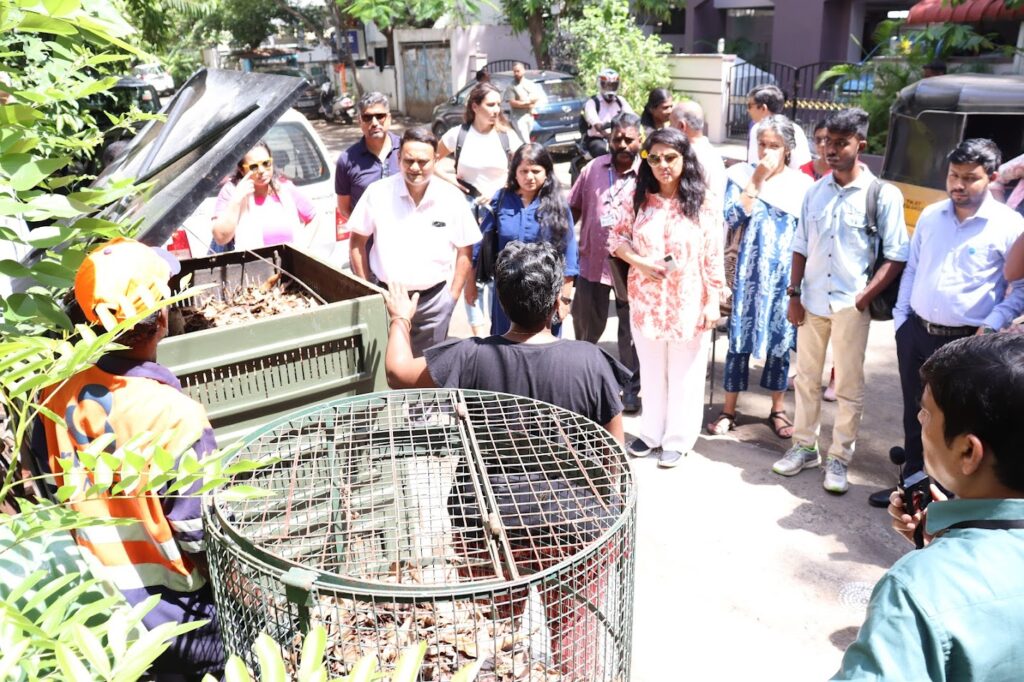
The delegation got to see the different types of lane composters installed in the locality. Visitors were impressed by the meticulous maintenance of the composters and the collaborative efforts of the community. Their enthusiasm stemmed from observing how these methods effectively managed organic waste, fostering admiration for the cooperative spirit and dedication to sustainable practices within the vicinity. They also visited several apartments in the neighbourhood to experience a terrace kitchen garden and understand effective techniques to implement source segregation.
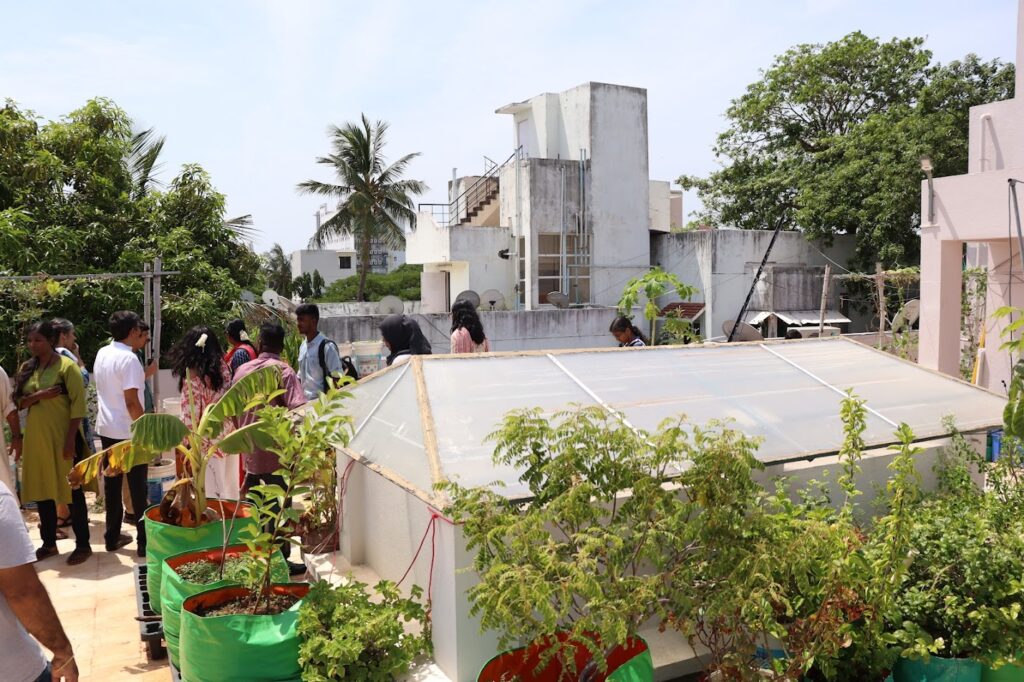
The ‘Punch the Plastic’ (PTP) initiative was implemented as the plastic component of the We Segregate Project. The concept involves installing sharp curved hooks on apartment walls specifically designed to collect low-grade single-use plastic waste. “It is a challenge for each household to collect sufficient quantities of such plastics and give it to an aggregator. With the PTP initiative, we can collect in bulk and give it directly to the aggregators,” highlighted P.Saranya, Treasurer of ROKA.
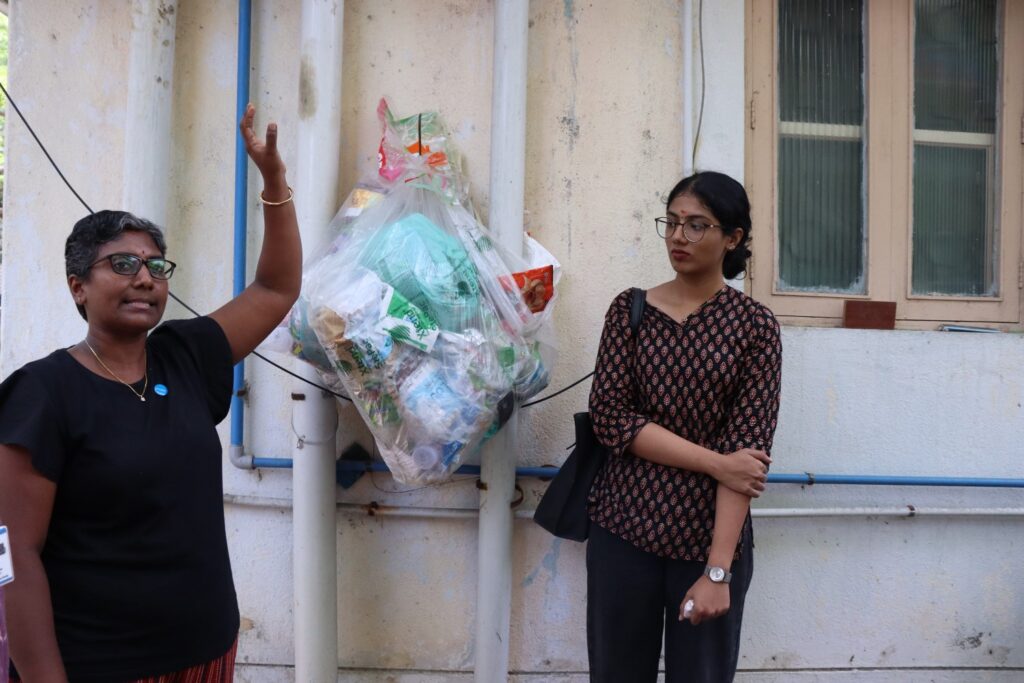
As the event concluded, the participants were served regional delicacies in steel cutlery and asked to wash their hands rather than using tissue paper, making it a zero-waste event. To ensure a lasting impact, everyone also participated in a fun sustainability quiz, so one might ponder on the choices we make every day towards saving our environment.
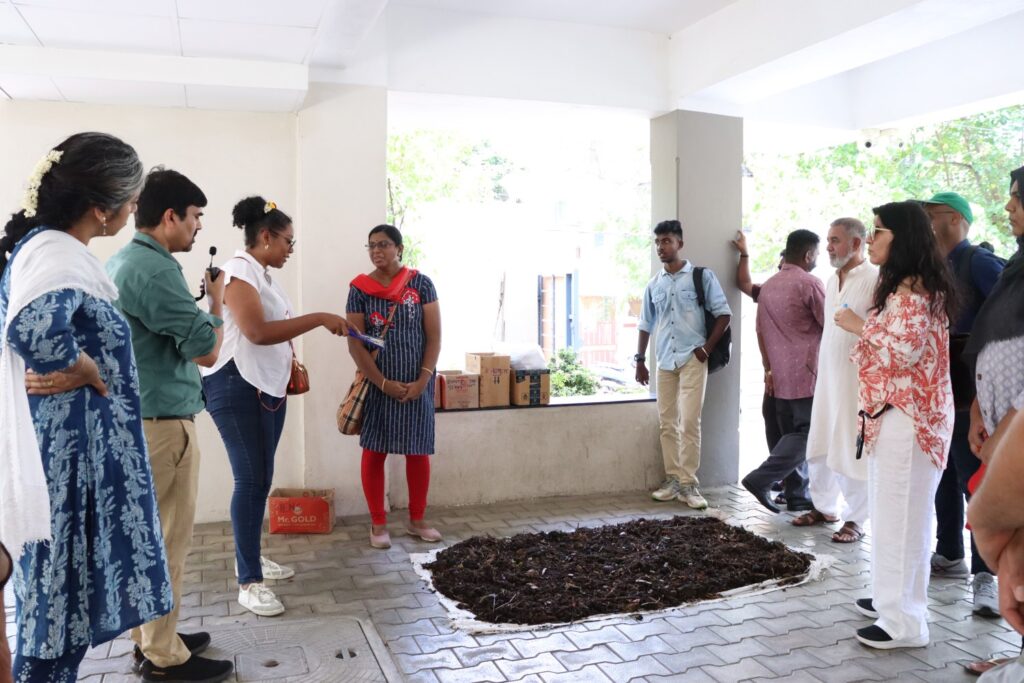
During the feedback session that followed the visit, representatives from other cities expressed genuine admiration for the management practices observed. One of them stated, “Having visited last October, I’ve seen significant improvements since then. I’m quite envious but eager to implement these techniques in my own country.” The event served as a platform for mutual learning and inspiration, fostering a sense of solidarity in tackling waste management issues through practical and innovative solutions. ROKA can be contacted at [email protected].


